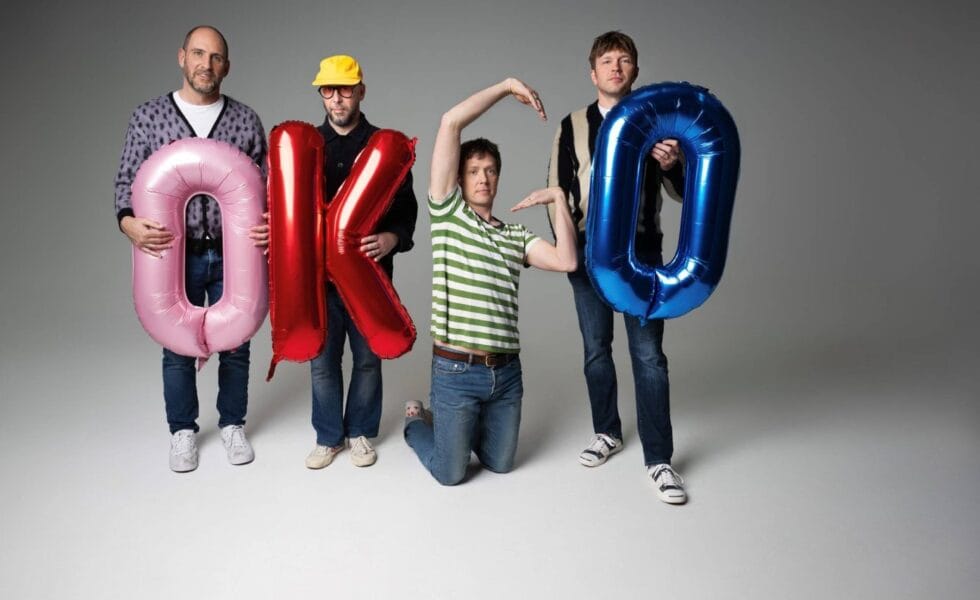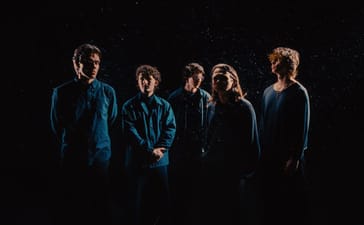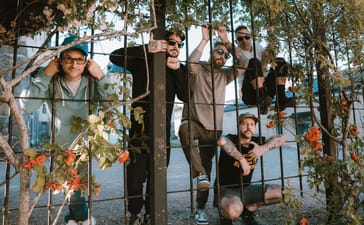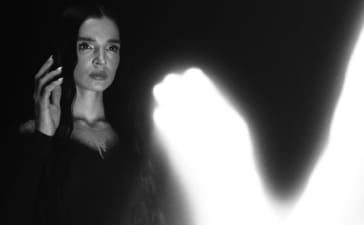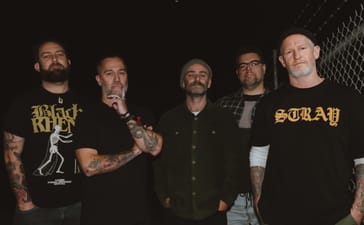OK Go lead singer Damian Kulash talks the magic of music making, why they took an eleven-year break, and when they’ll return to Australia
I genuinely believe OK Go’s Damian Kulash is a wizard – or at least something magical. There’s something in his conspicuous manner that makes you feel like, at any moment, he could cast a spell on you. Turn you into a rabbit, make you cry, or jump around like you’ve just heard your favourite song again for the first time.
To his credit, he’s already halfway there — the music’s doing most of the work.
A strange twist of timing unfolded just before we spoke. Literally a minute before the interview, I got a text from a mate linking me to the video for OK Go’s new song, Love.
“This is sick,” the message read in its blunt, juvenile glory. Little did he know I was about to chat to the brains behind his momentary obsession. It felt oddly fated. Like the universe had planned it. Or maybe that’s me overthinking things, which I usually do.
I tell Kulash this slightly baffling anecdote and watch his face light up. He’s modest – almost shy – when discussing his work. Like a wizard reluctant to reveal how the magic’s done.
“Really…all our videos are just art projects set to music,” he nods, smiling, as though feedback (even accidentally intercepted) still genuinely lands. I can see him rifling through the mental library for his next thought.
“The song’s about how fatherhood changed my understanding of love,” he says. “You spend your whole life analysing love. You think you know its many flavours. And then you have kids, and it shifts. It’s like a dream where you’re in your childhood home and you see a door that’s never been there before. Suddenly, the little apartment of love you’ve been living in has a new room. And the feeling is infinite.”
Kulash speaks about love like it’s seeped into every pore — as if his every move is an extension of it. That feeling pours into OK Go’s music video for Love, a dizzying, layered visual that aims to echo that infinite sensation.
“We wanted the video to express that feeling — that love is like standing between mirrors. It goes on forever. So we explored that in as many ways as we could.”
Love is pulled from And the Adjacent Possible, OK Go’s fifth studio album and their first full-length release since 2014. In the decade since, Kulash and his bandmates pressed pause on the chaos of rock stardom to step into something far more grounded — fatherhood.
It’s a chapter Kulash looks back on fondly.
“I found that everything in life became clearer through my kids. You feel their wonder. You see the world again through their eyes. I didn’t expect my own emotions to change, but they did. It made me care about music in a different way.”
When it came time to make the new record, I wondered if it felt the same as it did in the band’s early years. You know the story — band disappears, band returns, and the spark is gone.
But here, the opposite happened.
“It made music feel bigger. Because it made me feel smaller,” Kulash explains. “Everyone talks about letting the art lead you. You’re chasing a song that’s already out there, waiting to be discovered. And having kids makes that real. It knocks your ego into place. It’s not about me anymore. It’s not just your own treadmill. You realise how meaningful this stuff is outside yourself.”
OK Go’s album was built almost entirely by Kulash and longtime collaborator Tim Nordwind, then mixed by the legendary Dave Fridmann — the same man who’s worked with MGMT, the Flaming Lips, and Tame Impala. The band had worked with Fridmann before, and Kulash speaks of him like a co-conspirator in their ongoing sonic experiment.
The album title came from a phrase coined by evolutionary biologist Stuart Kauffman — a concept that immediately intrigued Kulash.
“The adjacent possible is this unbelievable thing,” he says, eyes lighting up like a kid who’s just discovered space. “It’s what happens when you add electricity to society. You can’t predict what will emerge. That’s how music works to me. When I write, I’m just playing with sounds until emotion spills out the other side.”
In fact, the whole process of making music sounds like alchemy when Kulash describes it. A bit of this, a dash of that — and sometimes, something magical appears.
“Every once in a while, when you’re writing, the sound just becomes emotion. And it hits you. Your brain is wired to react to sound faster than anything else. Your ears are plugged straight into your brainstem. So before you can even think about what it means, you feel it. That’s why you turn into a sobbing baby when you hear a Roberta Flack song. It’s not just sound.”
For Kulash, the process isn’t just sonic. It’s visual. Textural. Three-dimensional. You can see it even in the artwork for The Adjacent Possible — a black-and-white geometric loop that feels like it could fold in on itself forever.
“I told my designer mate, ‘I want to visualise the feeling of something simple turning into something complex.’ So we landed on pop-up spheres — four pieces of paper that fold into a three-dimensional illusion. Two spheres that, together, create this unexpected depth.”
As we wrap what’s been a kind of mini masterclass in creativity, I ask the question I’ve been holding onto the whole time: when are OK Go coming back to Australia?
Without hesitation, he replies:
“2026.”
And just like that, everything feels better. I’m telling you — he’s a wizard.


